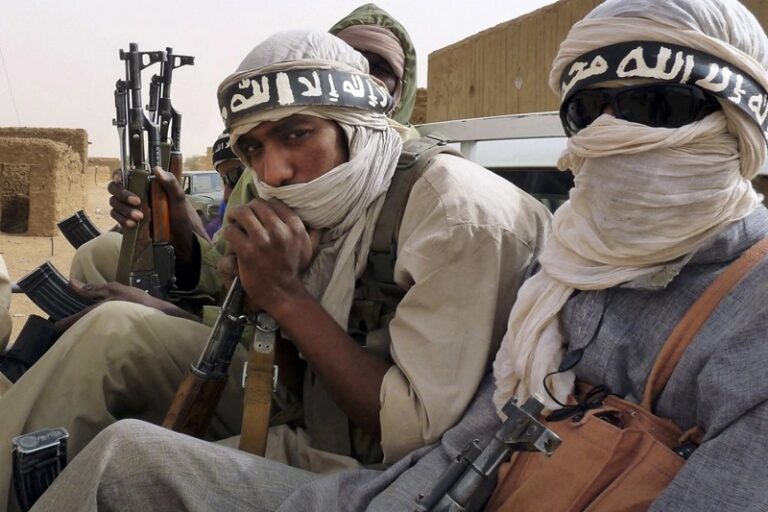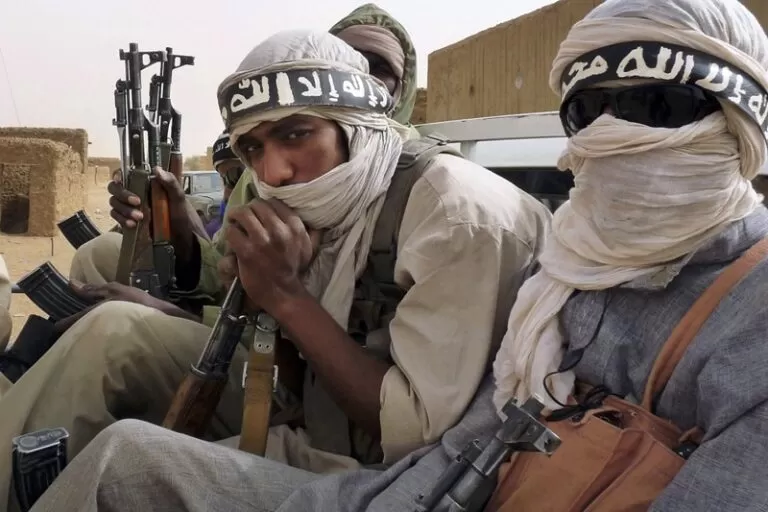

suspected jihadists killed over 130 malians
Over the course of the weekend, suspected terrorists slaughtered more than 130 innocent civilians in the central region of Mali. On Monday, the administration made the announcement of the killings following disturbing allegations on social media that talked of houses and huts being burned down as well as abductions.
Officials from the area have detailed scenes of systematic executions carried out by armed individuals in the town of Diallassagou and two towns nearby in the Bankass circle, which is a hub of militant violence. The only person who was able to survive the massacre was Nouhoum Togo, who lives in the principal town of the region.
They came, and in the Fulani language, they told the people, “You are not Muslims.” They also told the people in English, “You are not Muslims.” They then took the men, brought a hundred other people with them, and began methodically shooting people at a distance of two kilometers. They went with other people, and the next day we found their mutilated bodies, said Nouhoum Togo, the President of the USR party and a friend of those who had been hurt.
Since 2012, Mali has been rocked by an insurgency led by groups with ties to Al-Qaeda and the so-called Islamic State group, which has thrown the country into crisis and thrown it into a state of instability. The violence that began in the north has subsequently moved to the center of the country as well as to Burkina Faso and Niger, which are both neighboring countries. Jihadists frequently exact revenge on innocent civilians under the pretext that they are suspected of working with the opposing side.
The jihadists have taken control of certain regions of the country, particularly in the country’s center, and they are using this power to fiercely enforce their worldview. During conflicts between opposing armed groups, such as those linked to Al Qaeda and the Islamic State group, it is not uncommon for civilians to be caught in the crossfire between the two sides.
A group of non-governmental organizations from West Africa released a report on Thursday saying that the number of people killed by extremist groups in attacks in the central Sahel has nearly doubled since the year 2020.
According to a paper published by the United Nations in March, unrest in Mali in 2021 resulted in the deaths of approximately 600 civilians. The violence was primarily attributed to jihadist organizations, but it was also blamed on self-defense militias and armed forces. In documents submitted to the Security Council, the United Nations has voiced concern about the deteriorating security situation in central Mali, as well as in the north and in the so-called three-border zone on the borders of Burkina Faso and Niger. These areas are all located in Mali.
On Saturday, there were approximately 20 people who lost their lives in the northern region of Gao. On the previous Wednesday, an armed group released a statement stating that 22 people had been killed in the Menaka district. In the month of June, 86 people were slain in Seytenga, which is located in the north of Burkina Faso.
The Vatican has initiated its traditional selection protocol to choose the next Pope following the passing of Pope Francis. The…
"Baby Shark Dance" is still making waves in 2025! The kids' song by South Korea's Pinkfong is now the most-watched…
Kenyan sprint star Ferdinand Omanyala finished second at the opening race of the Diamond League in Xiamen, China, on Saturday.…
The incessant rains have caused flooding in Durban and its neighboring areas. It has disrupted several core areas, with a…
Cross-border activity suffered vast disruption when the new ban started at midnight Thursday with its direct impact on border checkpoints…
South African Bank fined R700,000 after determining the institution misrepresented a credit product as an investment opportunity. Following its December…
This website uses cookies.